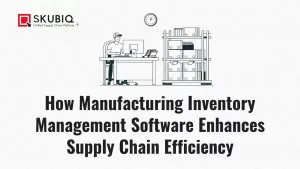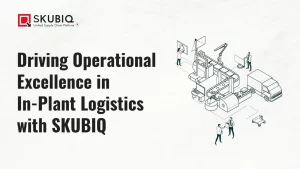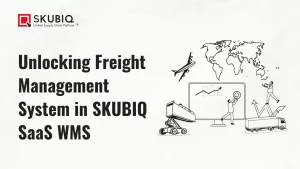In the fast-paced world of logistics and supply chain management, inventory fulfillment services play a pivotal role in ensuring that products are delivered to customers accurately and efficiently. The key to optimizing these services lies in improving decision-making processes. By leveraging advanced technologies and data-driven strategies, businesses can enhance their inventory fulfillment operations, leading to increased customer satisfaction, reduced costs, and improved overall efficiency. This comprehensive guide explores the methods and benefits of improving decision-making in your inventory fulfillment services.
The Importance of Data-Driven Decision-Making

Utilizing Real-Time Data
Real-time data is crucial for making informed decisions in inventory fulfillment. By implementing systems that provide up-to-the-minute information on inventory levels, order statuses, and delivery schedules, businesses can respond swiftly to changing conditions.
Real-time data enables:
- Accurate Inventory Management: Prevents overstocking and stockouts by providing precise inventory levels.
- Efficient Order Processing: Ensures orders are fulfilled promptly and accurately.
- Proactive Problem Solving: Identifies potential issues before they escalate, allowing for immediate corrective actions.
Predictive Analytics
Predictive analytics involves using historical data to forecast future trends and demand patterns. This technique is instrumental in improving decision-making by anticipating customer needs and optimizing inventory levels accordingly. Benefits include:
- Demand Forecasting: Predict future demand to ensure sufficient stock levels.
- Trend Analysis: Identify emerging trends to adjust inventory and marketing strategies.
Resource Allocation: Allocate resources efficiently based on predicted demand fluctuations.
Implementing Advanced Technologies
Warehouse Management Systems (WMS)
A robust Warehouse Management System (WMS) is essential for enhancing decision-making in inventory fulfillment. WMS provides comprehensive tools for managing warehouse operations, from receiving and storing goods to picking and shipping orders. Key features include:
- Inventory Tracking: Real-time tracking of inventory across multiple locations.
- Order Management: Streamlines order processing and fulfillment.
- Automation: Automates repetitive tasks, reducing errors and increasing efficiency.
Artificial Intelligence (AI) and Machine Learning (ML)
Artificial Intelligence (AI) and Machine Learning (ML) are revolutionizing inventory fulfillment by providing intelligent insights and automating complex decision-making processes. Applications of AI and ML include:
- Predictive Maintenance: Anticipate equipment failures and schedule maintenance to avoid downtime.
- Optimization Algorithms: Optimize picking routes and storage locations to improve efficiency.
- Customer Behavior Analysis: Analyze customer purchasing patterns to optimize inventory levels.
Enhancing Operational Efficiency

Lean Inventory Management
Adopting lean inventory management principles helps in minimizing waste and maximizing efficiency. Key strategies include:
- Just-In-Time (JIT) Inventory: Maintain inventory levels that meet current demand, reducing excess stock.
- Continuous Improvement (Kaizen): Implement ongoing improvements to processes based on regular feedback and performance analysis.
- Value Stream Mapping: Identify and eliminate non-value-adding activities in the fulfillment process.
Cross-Docking
Cross-docking is a logistics practice where incoming shipments are directly transferred to outbound vehicles with minimal storage time. This method enhances efficiency by:
- Reducing Handling Costs: Minimizes the need for storage and associated handling costs.
- Speeding Up Delivery: Accelerates the delivery process by reducing time spent in warehouses.
Improving Inventory Turnover: Enhances inventory turnover rates, ensuring fresher stock.
Optimizing Supply Chain Collaboration
Supplier Relationship Management (SRM)
Effective Supplier Relationship Management (SRM) is crucial for optimizing inventory fulfillment. Building strong relationships with suppliers ensures reliable supply chains and improved decision-making capabilities. Benefits include:
- Enhanced Communication: Facilitates better communication and coordination with suppliers.
- Risk Management: Identifies and mitigates supply chain risks.
- Collaborative Planning: Enables joint planning and forecasting, aligning inventory levels with supplier capabilities.
Collaborative Planning, Forecasting, and Replenishment (CPFR)
Collaborative Planning, Forecasting, and Replenishment (CPFR) is a strategy where businesses collaborate with suppliers and partners to improve inventory management.
CPFR involves:
- Joint Forecasting: Partners work together to create accurate demand forecasts.
- Shared Data: Sharing data across the supply chain to improve visibility and coordination.
- Aligned Replenishment: Coordinating replenishment activities to ensure optimal inventory levels.
Conclusion
Improving decision-making in your inventory fulfillment services is critical for achieving operational excellence and staying competitive in today’s market. By leveraging real-time data, predictive analytics, advanced technologies, and collaborative strategies, businesses can optimize their fulfillment processes, reduce costs, and enhance customer satisfaction. Implementing these practices will not only improve efficiency but also provide a solid foundation for future growth and success.
FAQs (Frequently Asked Questions)
1. How can real-time data improve inventory fulfillment services?
Real-time data enhances inventory fulfillment by providing up-to-date information on inventory levels, order statuses, and delivery schedules, allowing for accurate management and swift response to changing conditions.
2. What is predictive analytics and how does it help in inventory management?
Predictive analytics uses historical data to forecast future demand and trends. It helps in demand forecasting, trend analysis, and efficient resource allocation, ensuring optimal inventory levels.
3. What are the benefits of using a Warehouse Management System (WMS)?
A WMS offers real-time inventory tracking, streamlined order management, and automation of repetitive tasks, leading to reduced errors and increased efficiency in warehouse operations.
4. How does AI and Machine Learning improve decision-making in inventory fulfillment?
AI and ML provide intelligent insights, predictive maintenance, optimization algorithms, and customer behavior analysis, automating complex decision-making processes and enhancing overall efficiency.
5. What is cross-docking and what are its advantages?
Cross-docking involves directly transferring incoming shipments to outbound vehicles with minimal storage time. It reduces handling costs, speeds up delivery, and improves inventory turnover rates.



